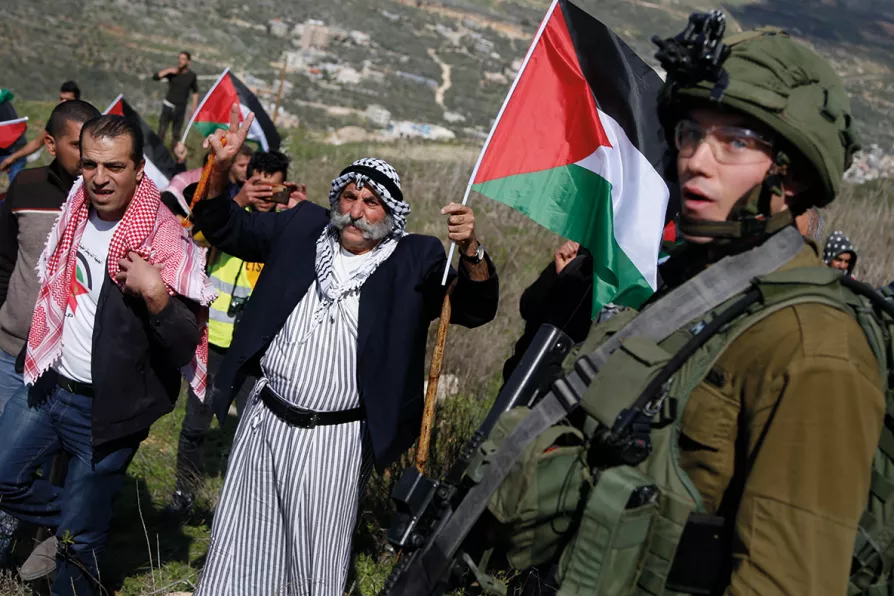MBDA’s Alabama factory makes components for Boeing’s GBU-39 bombs used to kill civilians in Gaza. Its profits flow through Stevenage to Paris — and it is one of the British government’s favourite firms, reveals SOLOMON HUGHES

 SUMUD: Unarmed Palestinians face down IDF soldiers close to the Jewish settlement Yitzhar, near the West Bank city of Nablus, February 2020
SUMUD: Unarmed Palestinians face down IDF soldiers close to the Jewish settlement Yitzhar, near the West Bank city of Nablus, February 2020
ON May 15, 2023, the Palestinian Nakba — “catastrophe” — will be 75 years old. Palestinians all over the world will commemorate the tragic occasion when nearly 800,000 Palestinians were made refugees and nearly 500 towns and villages were ethnically cleansed of their inhabitants in historic Palestine in 1947-48.
The depopulation of Palestine carried on for months – in fact, years – after the Nakba was supposedly concluded. But the Nakba has never actually concluded. Until this day, Palestinian communities in East Jerusalem, in the southern Hebron hills, in the Naqab Desert and elsewhere, are still suffering the consequences of Israel’s quest for demographic supremacy. And, of course, millions of refugees remain stateless, denied basic political and human rights.
In a speech before the UN World Conference against Racism in 2001, Palestinian intellectual Dr Hanan Ashrawi aptly described the Palestinian people as “a nation in captivity held hostage to an ongoing Nakba.”

With foreign media banned from Gaza, Palestinians themselves have reversed most of zionism’s century-long propaganda gains in just two years — this is why Israel has killed 270 journalists since October 2023, explains RAMZY BAROUD

Gaza’s collective sumud has proven more powerful than one of the world’s best-equipped militaries, but the change in international attitudes isn’t happening fast enough to save a starving population from Western-backed genocide, argues RAMZY BAROUD

RAMZY BAROUD asks why it has taken so long for even left-wing voices in the West to call out what Israel is doing

RAMZY BAROUD explains why the world can no longer ignore Palestine














